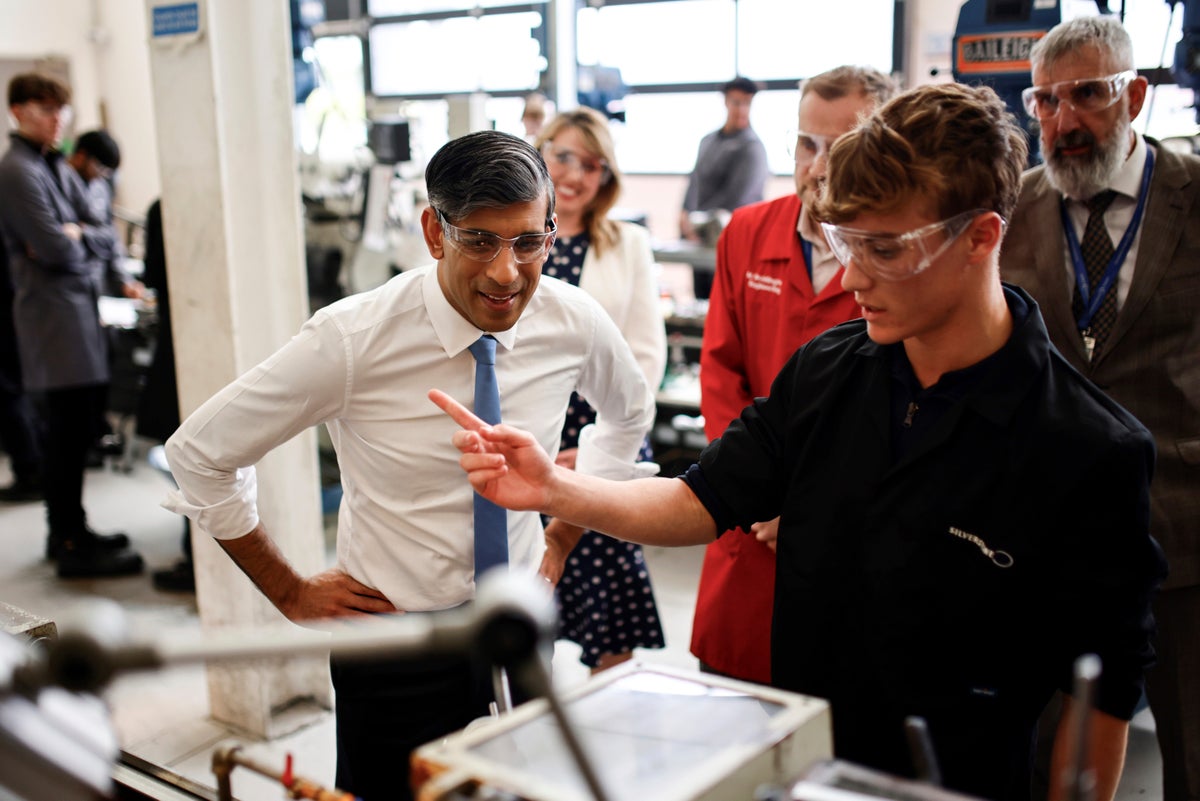
The British economy failed to grow in April, official figures showed Wednesday, in a blow to Prime Minister Rishi Sunak who has made the return of growth and a generally calmer economic backdrop a central pillar of the Conservative Party's election campaign.
The Office for National Statistics said wet weather dampened consumer spending and construction during the month. The flat monthly reading came after a 0.6% increase during the first quarter of the year, which Sunak has made much of on the campaign trail following a period of muted growth.
Though monthly figures are vulnerable to short-term factors, the flat reading is likely to be used by opponents of the Conservatives in the run-up to the election on July 4.
While Treasury chief Jeremy Hunt insisted the “economy is turning a corner,” his opposite number in the Labour Party Rachel Reeves said the “economy has stalled.”
The latest growth figures come a week before the next round of inflation data and the Bank of England makes its next interest rate decision.
Hopes within the Conservative Party that the bank would lower its main interest rate from the 16-year high of 5.25% have diminished after inflation failed to fall as much as hoped in April. Though inflation is down at an annual rate of 2.3%, it remains slightly above the bank's target and is expected to tick up slightly in coming months.
High interest rates — which cool the economy by making it more expensive to borrow — have helped ease inflation, but they’ve also weighed on the British economy.
“A June interest rate cut looks improbable, with the Bank of England likely to be a little wary of shifting policy in the middle of a general election campaign," said Suren Thiru, economics director at the Institute of Chartered Accountants in England and Wales.
On Tuesday, Sunak pledged to cut taxes and reduce immigration in the Conservative Party's manifesto for government if reelected. Labour, which is ahead in opinion polls, is due to publish its manifesto on Thursday.







